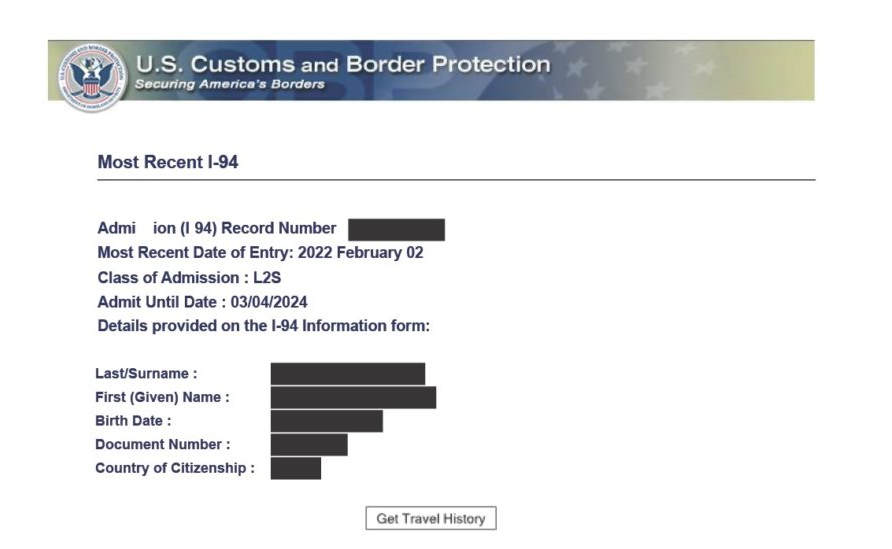Do E and L spouses require work authorization?
Kyle Huffman • July 28, 2022
A recent USCIS settlement has clarified the work authorization incident to status for certain E and L spouses.

Click here to read this article in Portuguese
In years past, spouses of certain E and L visa categories were required to apply for and receive an Employment Authorization Document in order to work in the United States. However, as the result of a settlement reached by USCIS in the class action lawsuit Shergill v. Mayorkas on November 10, 2021, USCIS now considers E and L dependent spouses to be authorized for employment incident to their status.
USCIS has issued a policy alert
clarifying this decision. The guidance for H-4 spouses has not changed, but automatic extensions of employment authorization for those in this visa category is possible. For L-2 and E-2 spouses, the settlement now confirms employment authorization incident to status.
If you are an E dependent spouse, your next entry into the United States should provide you with a new I-94 form that indicates your status as an E spouse with the ‘S’ annotation. For spouses of E-1 treaty traders, the I-94 should now list the spouse’s status as ‘E-1S’, and the same applies for E-2 and E-3 spouses, whose I-94s will show ‘E-2S’ and ‘E-3S’ status respectively.
While this settlement will result in much greater access to employment for certain E and L spouses, it is important to note that this settlement does not cover E and L dependent children, who will not have employment authorization in the same way that spouses do.
If you have any questions about what this means for you, please schedule a consultation with one of our experienced attorneys.
We look forward to working with you.
This blog is not intended to be legal advice and nothing here should be construed as establishing an attorney client relationship. Please schedule a consultation with an immigration attorney before acting on any information read here.
Kyle Huffman
Similar Posts

By Shirin Navabi
•
February 13, 2025
The E-2 Visa is a non-immigrant visa that allows foreign investors from treaty countries to live and work in the United States by starting or purchasing a business. Unlike other visa categories, it does not require a fixed minimum investment amount. Instead, applicants must demonstrate that their investment is substantial and sufficient to ensure the success of their business. The visa is renewable indefinitely as long as the business remains active and meets the necessary criteria, making it an attractive option for entrepreneurs seeking long-term opportunities in the U.S. One of its key advantages is flexibility. Investors can establish a new business, acquire an existing one, or enter into franchise opportunities. Additionally, spouses and children under 21 can accompany the primary applicant, with spouses eligible to apply for work authorization. This makes the E-2 Visa a practical option for business-minded individuals looking to establish themselves in the U.S. market. While the E-2 Visa itself has remained a stable option, shifts in U.S. immigration policies have influenced the application process and overall investor experience. Understanding these changes is essential for anyone considering this pathway. Policy Shifts and the E-2 Visa: Lessons from the Past During the first Trump administration (2017–2021), U.S. immigration policies became more restrictive across multiple visa categories. Although the E-2 program was not directly limited, broader changes had an impact. The "Buy American, Hire American" Executive Order, signed in 2017, led to heightened scrutiny of visa applications, requiring investors to provide stronger evidence that their business would create jobs and contribute to the U.S. economy. This resulted in an increase in Requests for Evidence (RFEs) and denials for those unable to meet these expectations. Another significant change was the suspension of the Interview Waiver Program, which meant all E-2 applicants, including renewals, had to attend in-person interviews at U.S. embassies. This extended processing times and increased scrutiny of applications. Additionally, visa reciprocity agreements were reviewed and adjusted, impacting validity periods and costs for certain countries. For instance, Iranian citizens were deemed ineligible for the E-2 Visa due to the termination of the treaty. These adjustments significantly affected investors from impacted nations, increasing their costs and renewal frequency. Despite these policy shifts, the approval rate for E-2 visas remained relatively stable. According to data from the U.S. Department of State, there were over 43,000 approvals in 2019, reflecting the program’s continued viability. Even in 2020, when the COVID-19 pandemic caused global disruptions, approval numbers remained significant. These figures highlight that while the process became more rigorous, well-prepared investors continued to secure visas by demonstrating strong business plans, substantial investments, and clear economic contributions. What to Expect Moving Forward As the new Trump administration takes shape, further immigration policy changes are likely. While it is too soon to predict the exact impact on the E-2 Visa, past trends suggest increased scrutiny. However, the program itself has remained intact across multiple administrations, reinforcing its reliability for foreign entrepreneurs. Those considering this visa should stay informed and ensure their applications meet evolving requirements. A well-prepared investment strategy, clear documentation, and a defined job creation plan can make a significant difference in navigating any potential policy shifts. Why the E-2 Visa Remains a Strong Choice The E-2 Visa continues to be a resilient and valuable option for foreign entrepreneurs. Even during periods of policy change, approval rates have remained strong for investors with well-structured applications. The ability to renew indefinitely, combined with its flexibility in investment size and business type, makes it one of the most attractive pathways for international investors. With the right preparation, investors can confidently pursue the E-2 Visa, knowing that history has shown its stability even amid shifting political landscapes. By staying ahead of policy changes and ensuring a solid business strategy, entrepreneurs can take advantage of the opportunities the U.S. market has to offer. If you are ready to take the next step toward launching your business in the U.S., you can contact our office for expert guidance and personalized assistance with your application.

By John Montesanti
•
August 10, 2023
The E-2 visa, a valuable pathway for foreign investors seeking to establish or operate a business in the United States. As experienced immigration attorneys, we are here to provide insights and guidance on navigating the E-2 visa process. The E-2 visa is designed to promote foreign investment and enhance economic growth in the United States. It offers a range of benefits for investors looking to reside and work in the country. One of the primary advantages of the E-2 visa is the ability to bring immediate family members, including spouses and children, to the U.S. to live and study. This visa also provides flexibility in choosing business ventures, allowing investors to pursue their entrepreneurial ambitions in a wide variety of industries. To be eligible for an E-2 visa, foreign investors must meet certain criteria. First, they must be a national of a country that has a treaty of commerce and navigation with the United States that includes the E-2 provision. Additionally, they must make a substantial investment in a bona fide U.S. enterprise and demonstrate their intent to develop and direct the business. There is no specific minimum investment amount required for the E-2 visa, but the investment must be proportionate to the total cost of the business. Furthermore, the investment must be at risk and capable of generating income and job opportunities. When applying for an E-2 visa, thorough preparation is key. Investors should gather the necessary documentation, including financial records, business plans, and evidence of the viability and credibility of the enterprise. The application process involves submitting these documents to the U.S. Citizenship and Immigration Services (USCIS) or at a U.S. embassy or consulate in their home country where there will also be a visa interview. Navigating the E-2 visa process can be complex, and there are potential challenges that investors may face. One common challenge is demonstrating that the business is not marginal, meaning that it has the capacity to generate significant income and provide job opportunities. Another important requirement is showing that the investment is at risk, indicating that the investor's capital is committed and subject to potential gain or loss. Additionally, there may be treaty interpretation issues that require careful analysis and expertise. Given the complexities of the E-2 visa process, seeking professional legal guidance is crucial. An experienced immigration attorney can assess an investor's eligibility, help strategize the investment plan, and navigate potential challenges. We can provide personalized guidance, ensuring that all necessary documentation is in order and that the application is strong and compelling and that you are prepared for your consular interview. If you are interested in learning more about the E-2 visa contact our office. We look forward to working with you.

By Santos Lloyd Law Team
•
April 10, 2025
In 2025, the immigration landscape continues to shift under the weight of national security concerns, ushered in by Executive Order “ Protecting the United States From Foreign Terrorists and Other National Security and Public Safety Threats. ” This directive tasks federal agencies—including the U.S. Department of State—with implementing enhanced screening and vetting protocols for all foreign nationals seeking visas or other immigration benefits. The result? A dramatically intensified vetting process, along with mounting concerns from immigrants, attorneys, and civil liberties advocates alike. Traditionally, airport security focused on verifying travel documents and screening for prohibited items, while consular officers assessed the legitimacy of visa petitions and the admissibility of applicants. Extreme vetting, however, represents a significant shift toward a far more invasive and comprehensive investigative process. It now includes detailed background checks, biometric verification, digital forensics, and expansive scrutiny of an applicant’s online presence and criminal or financial records. Since President Trump’s second term began in January 2025, the implementation of extreme vetting has expanded rapidly. Today, border screenings go far beyond routine document checks, encompassing a full-scale evaluation of a traveler’s digital life. This pivot reflects the administration’s intensified focus on national security, but it has also triggered urgent discussions about privacy, due process, and the fairness of modern immigration enforcement. At U.S. ports of entry—especially airports—noncitizens are now subject to rigorous and invasive procedures, including: Inspection of cell phones, laptops, and other devices (including deleted content) Review of social media activity on platforms like TikTok, Instagram, and X (formerly Twitter) Biometric scanning, including fingerprinting and facial recognition These measures are no longer confined to travelers from high-risk countries. In practice, extreme vetting applies broadly across all nationalities, and increasingly affects lawful permanent residents as well. For noncitizens, this new landscape introduces a heightened level of uncertainty and vulnerability. Delays at U.S. consulates for visa issuance or renewal are becoming routine. Travelers must now be acutely aware of these changes, and those attending consular interviews or seeking visa renewals should be prepared to provide additional documentation verifying their maintenance of status, compliance with visa conditions, and the bona fide nature of their visa applications. It is critical to organize supporting materials in advance and be ready to answer questions about employment, education, travel history, and online activity. As the U.S. government continues to expand its use of data-driven risk assessment tools, travelers must adapt to a new normal, one where preparation is essential to navigating the immigration system without disruption.

By Shirin Navabi
•
April 3, 2025
For international business owners and entrepreneurs engaged in cross-border trade with the United States , the opportunity to expand operations and establish a physical presence in the U.S. may be more accessible than expected. The E-1 Treaty Trader Visa is specifically designed to facilitate this type of business activity and offers a strategic pathway for qualifying individuals to live and work in the United States while managing or developing trade relationships. While 2025 has brought a trend of changes in immigration policy, the E-1 visa continues to stand out as a viable and welcoming option . Despite increased scrutiny across various immigration categories, this visa remains suitable for those involved in consistent, qualifying trade with the U.S. Its structure and purpose align well with current business realities, making it a stable choice even amid policy shifts. The E-1 visa is available to nationals of countries that maintain a treaty of commerce and navigation with the United States . To qualify, applicants must demonstrate that they are engaged in substantial trade—defined as a continuous flow of sizable international transactions—primarily between their home country and the U.S. Unlike investment-based visas, the E-1 visa does not require a fixed monetary threshold. Instead, it emphasizes active commercial exchange, such as the regular transfer of goods, services, or technology. This visa is applicable across a wide range of industries , including but not limited to manufacturing, logistics, professional services, consulting, finance, tourism, and technology. If more than 50% of your international trade is with the United States, and the business activity is consistent and well-documented, the E-1 visa may be a strong fit for your current business model. In addition to its flexibility, the E-1 visa is renewable as long as the trade activity continues. It also extends benefits to eligible family members: spouses and unmarried children under 21 may accompany the principal visa holder, and spouses are eligible to apply for U.S. work authorization, offering added support and financial opportunity for the family. This visa category is particularly well-suited for business professionals who are already operating in international markets and looking to formalize or expand their presence in the U.S. It rewards active engagement, proven commercial performance, and long-term trade partnerships. If you are currently engaged in trade with the United States and are considering expanding your business operations, the E-1 Treaty Trader Visa may provide a clear and effective route forward. Our attorneys at Santos Lloyd Law Firm are here to help you assess your qualifications and guide you through each stage of the process with clarity, strategy, and confidence.

By Juliana LaMendola
•
March 20, 2025
All people living in the United States, regardless of immigration status, have certain U.S. constitutional rights. If Immigration and Customs Enforcement (ICE) officers come to your workplace, they must have either (1) a valid search warrant, or (2) consent from your employer to enter non-public areas. Non-public areas could include: staff break rooms, server rooms, mechanical rooms, HR department offices, private meeting rooms, etc. However, ICE can enter public areas of your workplace (lobby, reception area, parking lot etc.) without a warrant or consent from your employer. If you encounter ICE at your place of employment, it is important to stay calm . If an officer stops you, you may ask if you are free to leave. If they say yes, walk away calmly. If they say no, stay where you are and do not attempt to leave. You have the right to remain silent. You do not have to speak to ICE, answer any questions, or show any documents . If asked about your place of birth, how you entered the United States, or your immigration status, you may refuse to answer or remain silent. If you choose to remain silent, say it out loud: “I choose to remain silent.” If officers ask you to stand in a group based on your immigration status, you do not have to move. Be prepared to assert your rights by downloading, printing, and carrying a "red card" (available at https://www.ilrc.org/red-cards-tarjetas-rojas ) that states you do not wish to speak, answer questions, or sign documents. You are not required to show immigration documents . You may refuse to show identity documents that reveal your nationality or citizenship. However, never show false documents or provide false information. If you are detained or taken into custody, you have the right to contact a lawyer immediately . Even if you do not have a lawyer, you can tell immigration officers, “I want to speak to a lawyer.” If you have a lawyer, you have the right to speak to them and, if possible, provide proof of this relationship (such as a signed Form G-28) to an officer. If you do not have a lawyer, ask for a list of pro bono (free) or l ow bono (low-cost) lawyers. You do not have to sign anything without first speaking to a lawyer. If you choose to sign any documents, make sure you fully understand what they mean, as signing may waive your rights or lead to deportation. If you believe your rights have been violated , write down what happened. Be sure to include specific details such as names, badge numbers, and exactly what was said and done. Report the violation to a lawyer or an immigrant rights organization as soon as possible. If you or someone you know may be impacted by this executive order, staying informed and understanding your rights is crucial. At Santos Lloyd Law Firm, P.C., our trusted immigration attorneys are available to provide guidance and support during this uncertain time. Please contact us if you need assistance.



